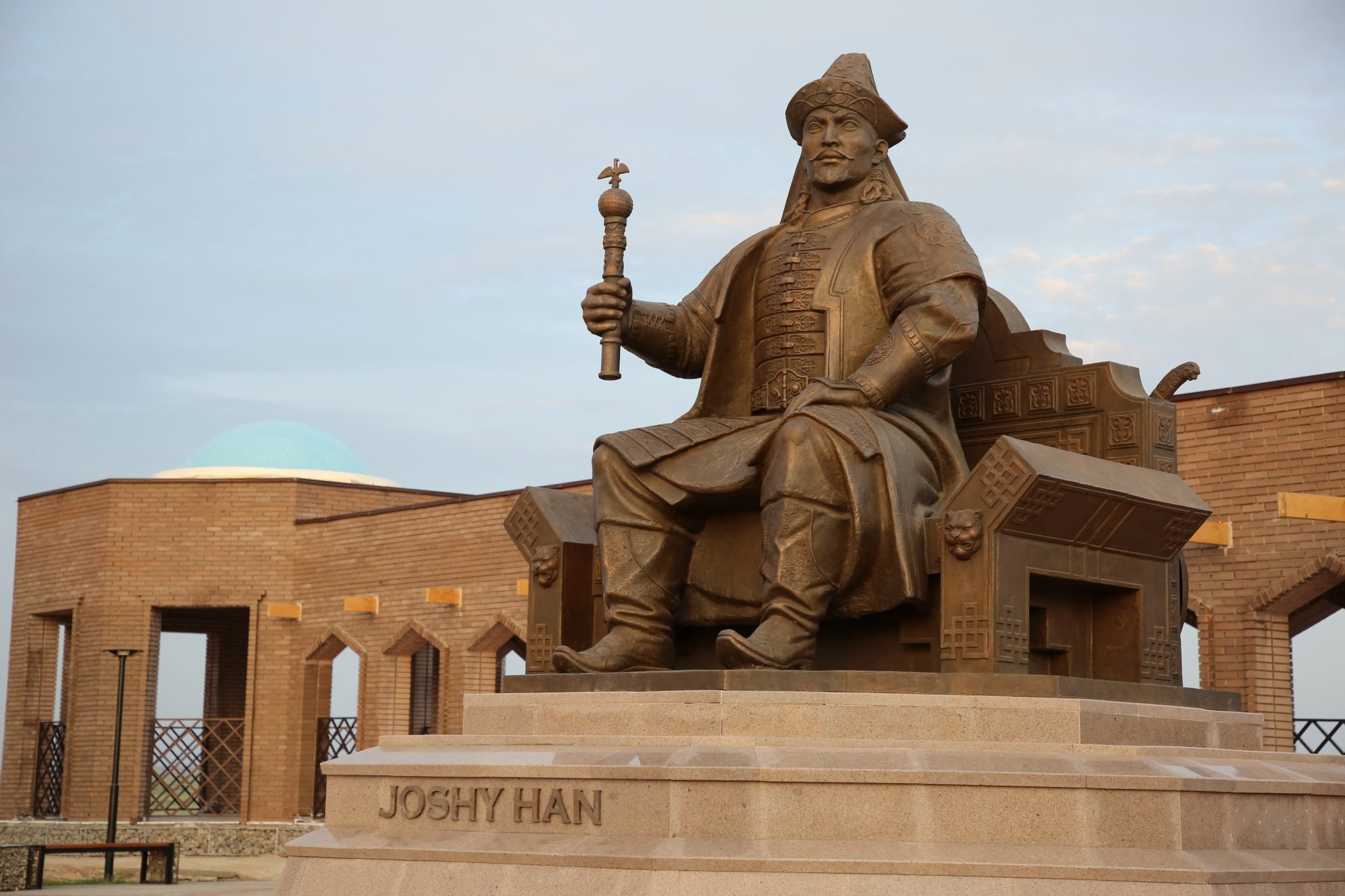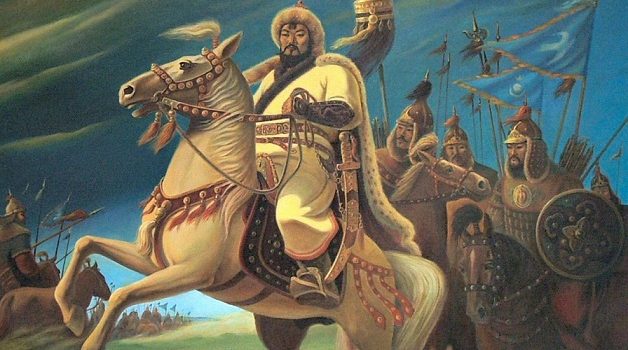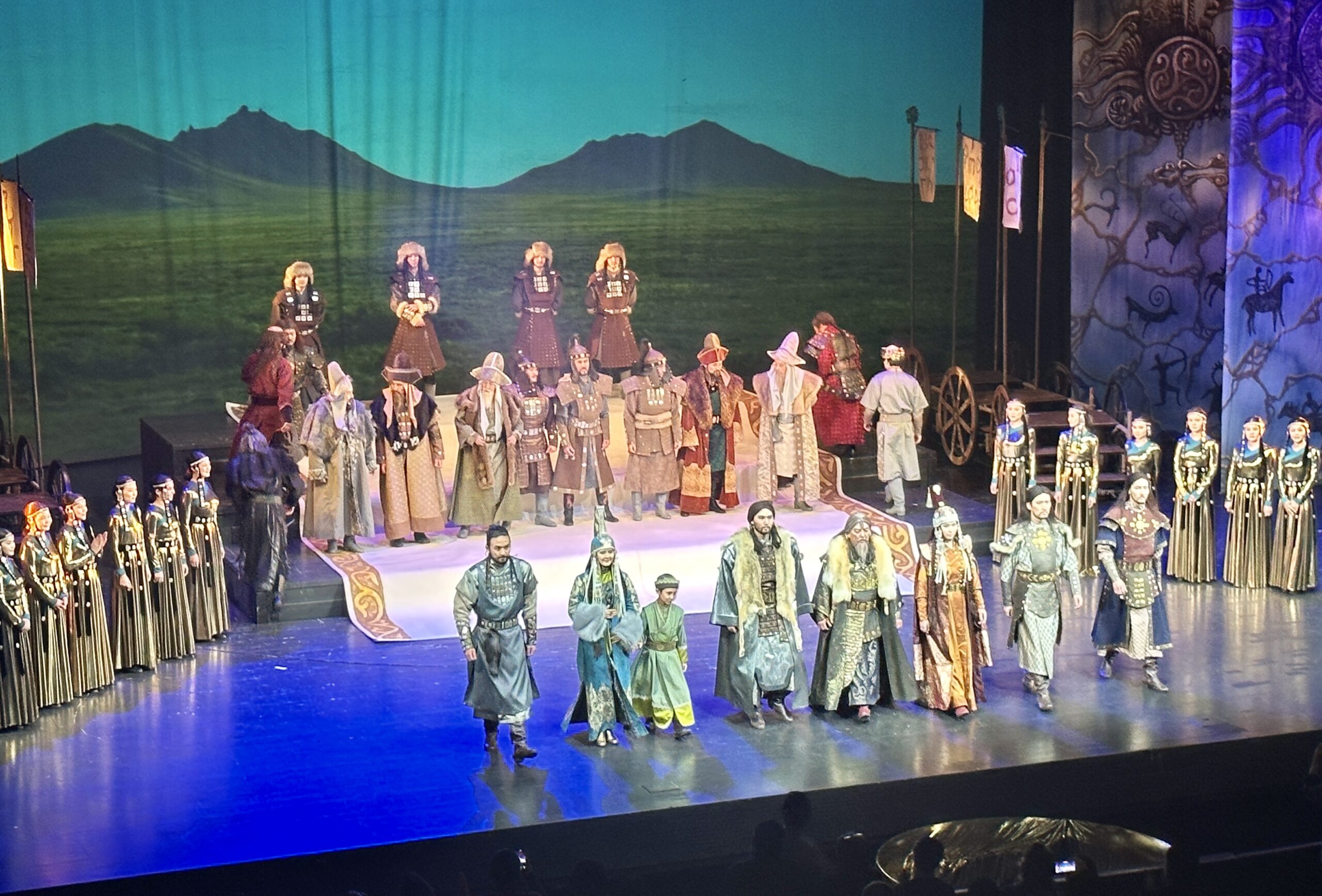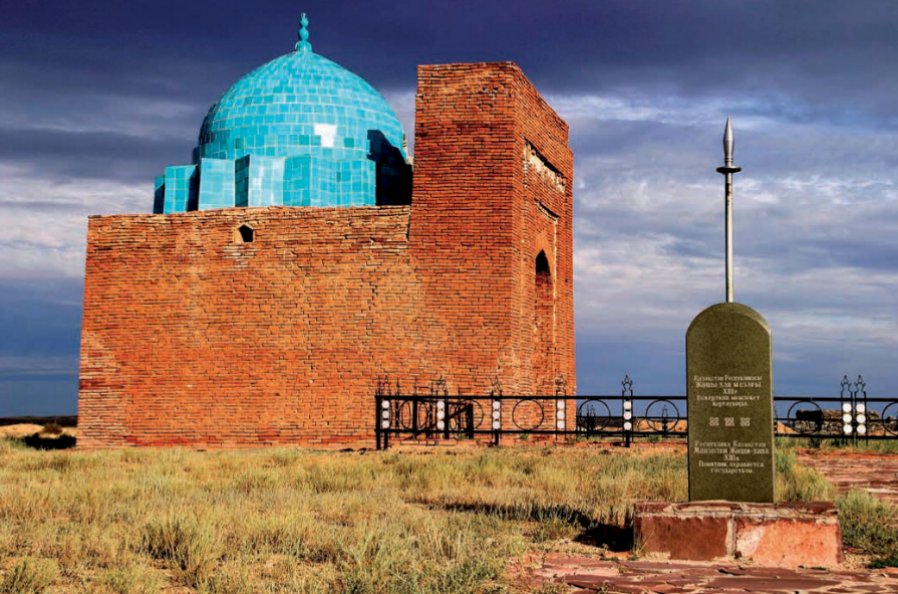ASTANA – This year, Kazakhstan marks 800 years since the foundation of Jochi Ulus (state), whose large territory once spanning from west Mongolia to eastern Europe, is considered the foundation of Kazakh statehood.

The monument of Jochi Ulus is located in the Ulytau region. Photo credit: Akimat of Ulytau region
Jochi was the eldest son of the Mongol Emperor Genghis Khan (ruler). Eight centuries ago, in 1224, Genghis Khan divided his empire among his four sons, giving Jochi the far west of the Mongol Empire, which includes the current territory of southern Russia and Kazakhstan. All Kazakh khans referred to themselves as Chingizids, tracing their lineage back to Genghis Khan and his descendants from Jochi.
About Jochi
Juchi was born around 1182 to Genghis Khan’s first and most esteemed wife, Borte. However, his paternity was frequently questioned because Juchi was born after his mother had been captured by the Merkits, sparking rumors about his true father. Despite this, Genghis Khan is said to have always regarded and treated Juchi as his son.

Photo credit: farabishakirti.kz
His brothers, particularly Chagatai, often used this uncertainty about his paternity to undermine him. On one occasion, in Genghis Khan’s presence, their bickering nearly escalated into a physical fight, with the brothers grabbing each other by the collar. These complex father-son and sibling dynamics are vividly portrayed in the historical play “Zhoshy Khan” at the Kuanyshbaev Kazakh State Academic Musical and Drama Theater.

The “Zhoshy Khan” historical drama draws a full house at Kuanyshbaev Kazakh Musical and Drama Theater. Photo credit: The Astana Times.
The precise date and reason for Juchi’s death remain uncertain. According to some accounts, he was poisoned by the order of his father, possibly at the suggestion of his brother Chagatai. The Ulytau Region in Kazakhstan houses a mausoleum dedicated to Jochi Khan, but it may not be his actual burial site. Rather, it commemorates the founding of Jochi Ulus in that region.
Ulytau Region as the foundation of future Kazakh khanate
When Jochi first moved to Ordabazar, a medieval summer camp along the Kengir River in what is now the Ulytau Region, he is said to have highly admired the fields of his new settlement.
Persian historian Minhaj-i-Siraj Juzjani quotes Jochi in his historical work, “Tabaqat-i Nasiri:” “Even if you travel around the world, you will not find a place as soul-soothing, with clean air, delicious water, and wide open land as this,” said Jochi, describing the region’s wide steppes.

The mausoleum of Jochi Khan is located 45 km northeast of the city of Zhezkazgan ( Ulytau region). Photo credit: old.archaeology.kz
Since then, this historic region has been the epicenter of political discourse and a crucial gathering place for future Kazakh khans, where, for centuries, they convened to make vital decisions regarding statehood and the future of the Kazakh people.
In the words of prominent Kazakh writer Abish Kekilbai, Ulytau is not called great because of its mountain’s height or its abundance of water but because it is where a great community came together to lay the foundation of the future Kazakh state.
Later, the great Abylai khan, who elevated the Kazakh state to unprecedented heights, became the khan of previously divided 300 Kazakh tribes while seated on white felt in the Ulytau Region. Similarly, the crowning ceremony of Kenesari, the last ruler in the Kazakh khanate tradition, took place on Ulytau field.
Jochi ulus initially occupied northern Khorezm, Turkistan, and the eastern part of Desht-i Kipchak (Steppe of the Kipchaks), which is present-day Kazakhstan. Most of these territories were conquered by forces under Jochi’s command. Even while serving under his father, Jochi captured the cities of Otyrar, Syganak, Uzkent, Barshinkent, Aspas, and Zhankent along the Syrdarya river. Researchers estimate that approximately 65% of present-day Kazakhstan was once part of the territory controlled by Jochi.
Expansion of territory under Batu
It was only after Jochi khan’s death in 1227, when his second son Batu came to power, that the ulus expanded far beyond its initial territory.
From 1236 to 1243, Batu led what historians refer to as the Mongol Western campaign, which initially resulted in the conquest of the western Cumans steppe, Volga Bulgaria, the Volga and North Caucasian peoples. Under Batu’s leadership, Mongol forces repeatedly invaded Russia, conquering cities such as Ryazan, Vladimir, Chernigov, and Kiev. Despite facing staunch resistance, the Mongols continued their advance into Central Europe.
By the mid-13th century, Batu’s empire, known as Desht-i Kipchak due to its formation by many Turkic-speaking tribes, had become the most extensive empire in Asia and Europe. Although the ulus of Jochi under Batu remained part of the Mongol Empire, it is Batu who can be considered the founder of the future Golden Horde or the Kazakh khanate.
